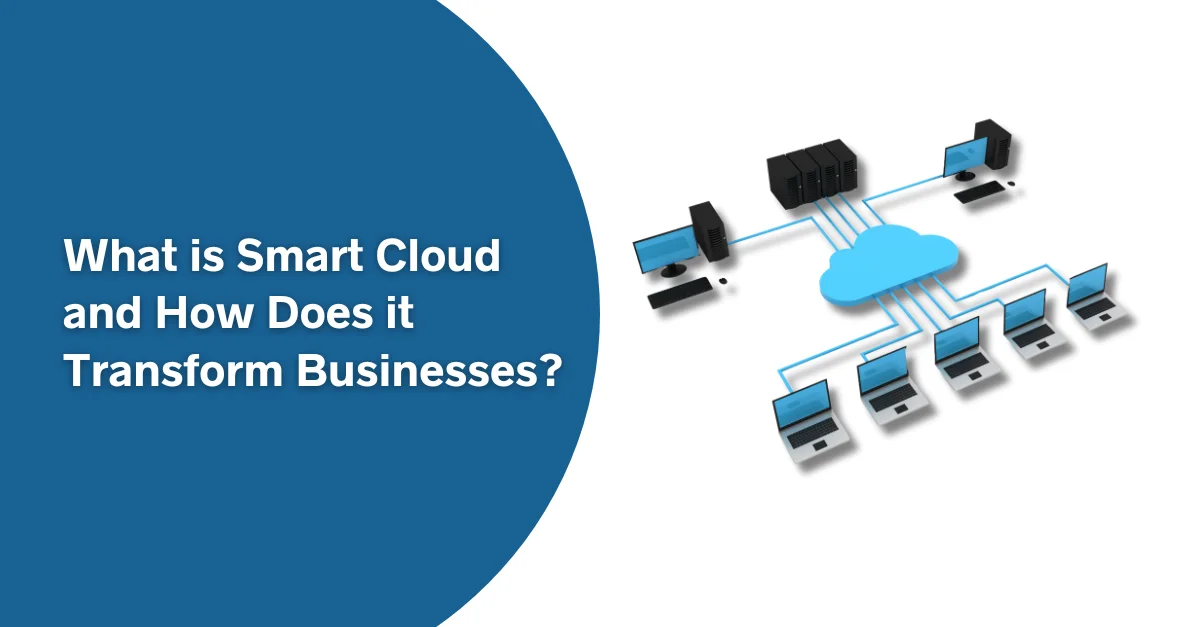In today’s rapidly evolving digital world, businesses are increasingly looking for innovative solutions that offer flexibility, efficiency, and scalability. Enter Smart Cloud—a next-generation approach to cloud computing that combines the power of artificial intelligence (AI), automation, and advanced data analytics to help businesses operate smarter, faster, and more securely. In this post, we’ll explore what Smart Cloud is, its key features, and how it transforms businesses across industries.
What is Smart Cloud?
Smart Cloud refers to a more intelligent and adaptive form of cloud computing that goes beyond basic data storage and computing power. It leverages AI, machine learning (ML), big data analytics, and automation to provide businesses with insights, improve operational efficiency, and optimize resources in real-time. Essentially, Smart Cloud isn’t just about hosting data; it’s about making that data smarter by applying intelligent algorithms and technologies that can process, analyze, and act upon information autonomously.
Key Characteristics of Smart Cloud
- AI Integration: Smart Cloud solutions are powered by AI and ML to predict trends, automate processes, and enhance decision-making.
- Automation: Routine tasks such as system updates, scaling resources, and data management are automated, freeing up time for businesses to focus on innovation.
- Real-time Analytics: Data is processed and analyzed in real-time, allowing businesses to make quick decisions and stay agile in a fast-moving market.
- Resource Optimization: Smart Cloud platforms are designed to allocate resources efficiently based on demand, ensuring cost savings and optimal performance.
How Smart Cloud Transforms Businesses
- Enhanced Efficiency and Automation
One of the biggest advantages of Smart Cloud is its ability to automate routine tasks. For example, cloud platforms can automatically scale resources up or down based on usage, optimizing server performance and reducing costs. This automation streamlines workflows and reduces human error, ultimately increasing operational efficiency. - Improved Decision-Making with Data-Driven Insights
Smart Cloud platforms provide real-time data analytics, enabling businesses to make data-driven decisions instantly. With AI-powered algorithms, companies can analyze trends, customer behavior, and market conditions to make more accurate forecasts, create targeted strategies, and identify new business opportunities. - Cost Savings Through Resource Optimization
Smart Cloud optimizes cloud resource management, allowing businesses to only pay for what they use. The ability to scale up or down automatically based on demand helps companies avoid over-provisioning resources, which can lead to unnecessary costs. This level of flexibility makes it easier for businesses of all sizes to manage their IT budgets effectively. - Seamless Collaboration and Communication
By integrating Smart Cloud technologies, teams can collaborate effortlessly, whether they’re working in-office or remotely. With cloud-based tools, employees can access the same documents, data, and applications from anywhere, enabling better communication and fostering collaboration across different locations and time zones. - Agility and Scalability for Growth
As businesses grow, they need flexible solutions that can scale with them. Smart Cloud enables businesses to scale their infrastructure up or down quickly in response to changing needs, whether they’re launching a new product, expanding to new markets, or responding to fluctuating demand. This agility allows businesses to stay competitive in a fast-paced market environment. - Enhanced Security and Compliance
Security is a top concern for any organization, especially when handling sensitive data. Smart Cloud platforms offer advanced security features such as encryption, multi-factor authentication, and real-time threat detection powered by AI. Additionally, these platforms help businesses comply with industry regulations by automating data governance and audit processes. - Improved Customer Experience
By leveraging AI and real-time analytics, businesses can better understand customer needs and preferences. Smart Cloud enables the development of personalized experiences, such as customized recommendations, targeted marketing campaigns, and improved customer support. This leads to increased customer satisfaction, loyalty, and ultimately, higher revenue.
Industries That Benefit from Smart Cloud
Smart Cloud is not limited to a specific sector—it is transforming businesses across industries:
- Healthcare: With the ability to analyze vast amounts of patient data in real-time, Smart Cloud helps healthcare providers deliver personalized care, improve patient outcomes, and streamline administrative tasks.
- Retail: Retailers can use Smart Cloud to track customer behavior, optimize inventory management, and provide personalized shopping experiences to customers, whether online or in-store.
- Finance: Smart Cloud solutions are empowering financial institutions to analyze market trends, detect fraud, and provide personalized financial services to customers.
- Manufacturing: The integration of AI and IoT in Smart Cloud enables manufacturers to optimize production lines, monitor equipment in real-time, and predict maintenance needs, reducing downtime and improving overall efficiency.
How to Adopt Smart Cloud in Your Business
- Assess Your Needs: Start by understanding the specific needs of your business. What processes can be automated? What data needs to be analyzed in real-time? Identifying these needs will help you choose the right Smart Cloud solution.
- Choose the Right Provider: Select a Smart Cloud provider that offers the right combination of AI, automation, and scalability. Some popular Smart Cloud platforms include Amazon Web Services (AWS), Microsoft Azure, and Google Cloud.
- Plan for Integration: Integrating Smart Cloud with existing systems may require some planning. Work with your IT team or a consultant to ensure a smooth transition and minimize disruptions.
- Train Your Team: Ensure that your team is equipped with the knowledge and skills to leverage Smart Cloud tools effectively. Training your staff on how to use new cloud-based tools will help ensure a successful adoption.
Conclusion
Smart Cloud is more than just a cloud storage solution; it’s an intelligent system that enables businesses to become more efficient, agile, and data-driven. By leveraging AI, automation, and real-time analytics, Smart Cloud can transform the way companies operate, making them more competitive and better equipped to meet the demands of today’s fast-paced business world. Whether you’re a small startup or a large enterprise, embracing Smart Cloud technology is key to staying ahead of the curve.
#SmartCloud #CloudComputing #AIinCloud #BusinessTransformation #BusinessTransformation #BusinessTransformation #BusinessTransformation
